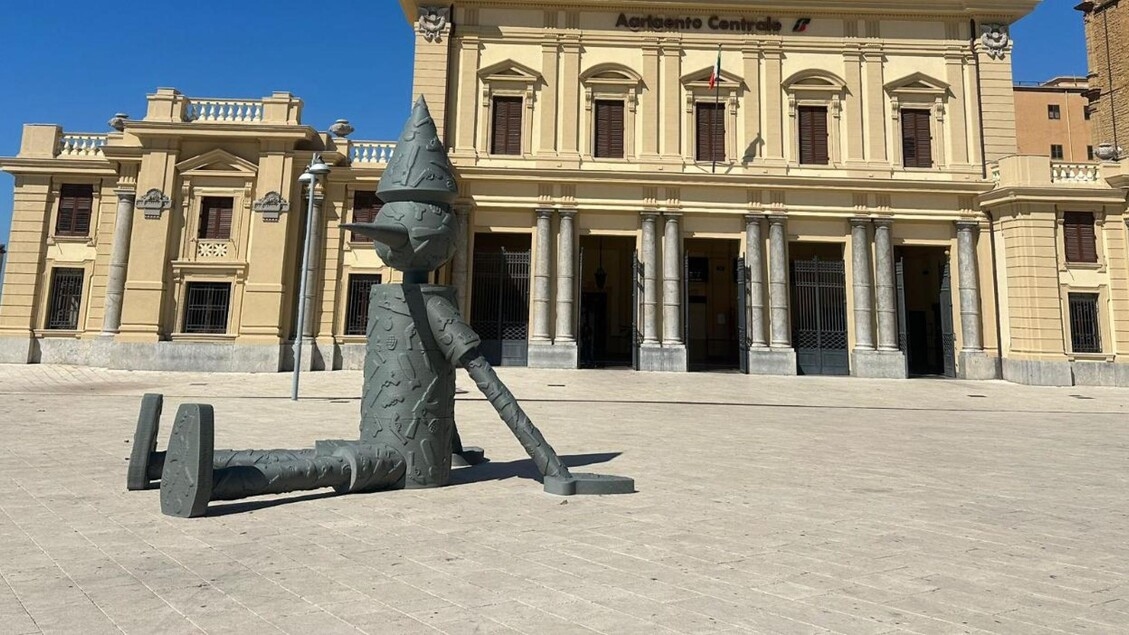An antimilitarist Pinocchio is born from the waste in Agrigento.

AGRIGENTO – It is from waste—from Tetra Pak, to be precise—that two symbolic works were born for Agrigento, the Italian Capital of Culture. These two works, from the City of Temples, convey two complementary and different messages. They are the profoundly anti-militarist Pinocchio and three columns that pay homage to the Temple of Concord, created by Edoardo Malagigi. Tetra Pak Temple and End Game were inaugurated this morning, the first in the refectory of the ancient monastery of Santo Spirito, Pinocchio in Piazza Marconi, where they will remain until December 14th.
"Having worked with waste for over fifty years, I wanted to consider the waste among waste, that Tetrapak that is part of our daily activities," explains Malagigi, who has dedicated his life to the dialogue between art, design, and activism for years. "And in this case, in the monastery space, we decided to enter the world of history and reproduce a symbol like the columns."
It's a single-material, multi-colored, sparkling installation, with all the brands appearing like small windows. Students from the province's schools worked on its assembly, participating in a fun collective workshop on the theme of recycling. "Seeing the kids collaborate with Edoardo Malagigi was a joy: they understood, perhaps even before us adults, the urgency of the messages being sent," says Agrigento2025's general director, Giuseppe Parello. "There's an acceleration in the planning for Agrigento, the Italian Capital of Culture; we're finally starting to see it physically: on Friday, September 26th, we're inaugurating 'Concordia,' a project that's been brought to the city, also addressing the dimension of women's writing that's often overlooked; and on the 30th, we'll be discussing hospitality with 'Hospitium' at the Pelagie Museum in Lampedusa."
The Pinocchio in Piazza Marconi has struck Agrigento residents, and not only them: tired, seated, and gray. It's a powerful anti-militarist metaphor, with images of weapons tattooed in relief on his body. The message is clear: if we want to end wars, we must halt the sale of weapons. Wars loom, but the games are truly over: End Game is also a tribute to the great thinker of nonviolence, Danilo Dolci. The sculpture has already become a fun meeting point for Agrigento residents, filled with selfies and curiosity.
The sculptures, designed by Malagigi, were created with the technological support of R3direct, a Tuscan company specializing in sustainable production through 3D printing with recycled and recyclable materials.
ansa





